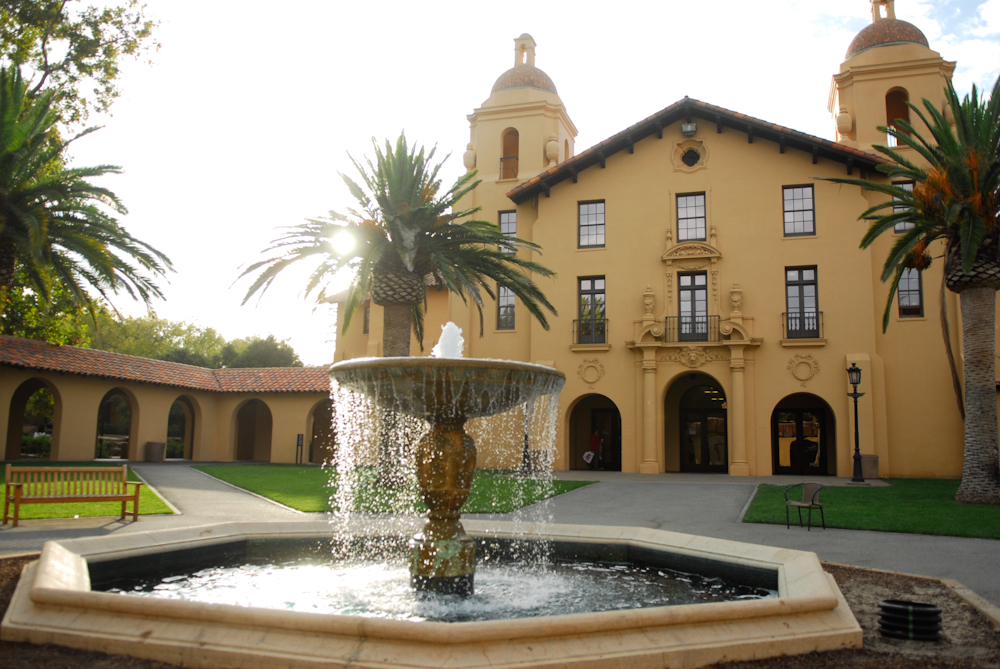In a closed session before last Tuesday’s Undergraduate Senate meeting, ASSU senators met with the nominee for new ASSU Financial Manager/CEO of Stanford Student Enterprises (SSE), Zubair Ahmed ’11 M.S. ’13.
Several senators, however, emerged from the meeting questioning Ahmed’s credentials and his path to the nomination and held an emergency meeting on Saturday to discuss their concerns. In particular, allegations of a preexisting relationship between Ahmed and chairman of the Board of Directors of SSE Ateeq Suria Ph.D. ’16 were made.
Potential conflicts of interest
According to one senator who spoke with The Daily, several members of the Senate were concerned that Suria’s and Ahmed’s relationship prior to the beginning of the CEO/FM search process may have favorably influenced Ahmed’s nomination — a fact that concerned the senator in light of allegations made against former CEO/FM Frederik Groce ’14.
As chairman of the Board of Directors of SSE, Suria serves on the Financial Manager Selection Committee (FMSC), a four-person committee responsible for choosing the next CEO/FM. The other members are ASSU President John-Lancaster Finley ’16, ASSU Vice President Brandon Hill ’16 and Graduate Student Council Financial Officer Sam Bydlon Ph.D. ’17.
Suria and Ahmed both earned their master’s degrees in mechanical engineering from 2010 to 2013. They are both advisors to Stanford’s Tau Beta Pi, an engineering honor’s society, and they have jointly represented Stanford at Tau Beta Pi conferences, according to the Tau Beta Pi website. No relationship between the two was disclosed to the Senate.
“At no point did I hear Ateeq or [Bydlon] make any sort of disclosure that Ateeq clearly knows this person,” said the senator, who wished to remain anonymous due to being unauthorized to speak on the issue. “I do not recall that being said at all.”
The Senator emphasized that the Undergraduate Senate has no representation on the FMSC, as Senate Chair Sina Javidan-Nejad ’17 forfeited his seat on the committee.
“The ASSU Senate is not complicit in any of this corruption,” the senator said.
Alleged lack of qualifications
According to the senator, Ahmed was unable to answer basic questions regarding the operations of SSE or his plans for the organization. Ahmed allegedly responded that he needed to learn more about the organization in order to answer the senators’ questions.
Before the closed session, Suria and Bydlon allegedly informed the senators that the search committee had chosen Ahmed over another candidate who had experience in the ASSU.
“I don’t know if that person had experience in SSE, but if they had experience in the ASSU, then they definitely know what SSE is and how it works,” the senator said.
The senator became further concerned about whether Ahmed was qualified to manage the SSE’s endowment when he learned that Ahmed lacked experience in finance. Most recently, Ahmed worked as a product manager at Boeing.
“Going from a product manager at Boeing to somehow now running an $18 to 20 million endowment … it just doesn’t make sense to me at all,” the senator said.
Next steps
A vote for confirmation will occur in closed session at Tuesday’s Senate meeting. A majority vote is required for the confirmation to succeed. If confirmed, Ahmed would replace Groce, who resigned in early March in light of allegations that Groce had hired his girlfriend for a job at SSE.
Suria declined to comment on the CEO/FM candidate, citing a portion of the ASSU Joint Bylaws, which states that “the identity of the person nominated shall not be made public until after both Association legislative bodies have approved the nomination.”
However, Suria described the three-month long nomination process, including an intensive three-part interview, as comprehensive. He emphasized that many different parties contributed to the decision to nominate the individual the FMSC chooses.
“The first round interview was focused on applicants’ resumes by asking behavioral and situational questions,” he said in an email to The Daily. “The second round consisted of two case interviews, one around the FM role and the other around the CEO role. The final round interview consisted of up to a 25-person moderated discussion with key stakeholders.”
He added, “The FMSC then deliberated for weeks before reaching consensus around a candidate to be put forth to the legislative bodies for nomination, in closed session, at the next regularly scheduled meeting.”
Ahmed did not respond to a request for comment.
Contact Blanca Andrei at bandrei ‘at’ stanford.edu and Victor Xu at vxu ‘at’ stanford.edu.
